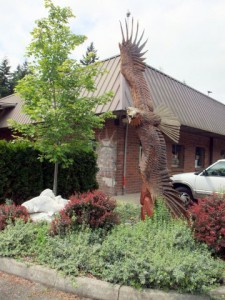Tribal Libraries in Washington receive grants from IMLS
From the desk of Carolyn Petersen.
The recent announcement of the IMLS Basic grants to Washington State tribes reveals the importance placed on learning by the Native America tribes of Washington State.
The following tribes applied and received the basic grant:
- Kalispel Indian community of the Kalispel Reservation–Usk
- Yakama Tribal Council—Toppenish
- Lower Elwha Tribal community—Port Angeles
- Lummi Indian Business Council—Bellingham
- Suquamish Indian Tribe of the Port Madison Reservation–Suquamish
- Jamestown S’Klallam Tribe—Sequim
- Skokomish Indian Tribe of the Skokomish reservation—Skokomish Nation
- Nooksack Indian Tribe—Deming
- Hoh Indian Tribe—Forks
- Nisqually Indian Tribe—Olympia
- Shoalwater Bay Indian Tribe—Tokeland
- Port Gamble Band of S’Klallam tribe—Kingston
- Samish Indian Nation—Anacortes
- Squaxin Island Tribe—Shelton
- Makah Indian Tribe of the Makah Indian Reservation—Neah Bay
- Stillaguamish Tribe of Washington –Arlington
In addition to receiving basic grants two of Washington’s Tribal Libraries received special Enhancement Grants.
Yakama Tribal Council – Toppenish, WA
With this award, the Yakama Nation will revive the existing outdated library collection with relevant new books, and audio and video resources. The library staff will focus on professional development in cataloging, reading literacy, and collection development in order to facilitate, support, and assist patrons in meeting their information retrieval needs. The library will also collaborate with the Yakama Nation Tribal School to select readings to enhance student project-based learning research needs. The Yakama Nation envisions building upon their collaborative success by updating the library collection and promoting reading. These developments will enhance library programming, promote reading, and generate enthusiasm for reading at Head Start facilities and at library story hours.
Nisqually Indian Tribe – Olympia, WA
The Nisqually Tribe will utilize a StoryCorps recording studio within the tribal library to record the stories of tribal members. Trained staff will use the recording technology to facilitate sessions where tribal members exchange and share their stories with each other. These recordings will then become part of the knowledge the tribe can share from the tribal library’s collection and will be preserved for future generations.
Tribal libraries are spread all across the state and have a variety of missions. Some serve as afterschool support for the youth of their tribe. Others concentrate on early childhood literacy. Yet others serves as their community’s public library. Some tribal libraries support college programs both distance and on site while yet others provide genealogy resources for individuals to prove tribal membership. There are museum research collections. Some libraries provide resources to preserve their native language. Each of these libraries is unique and reflects the values of its tribal community.
You can follow any responses to this entry through the RSS 2.0 feed. Both comments and pings are currently closed.





